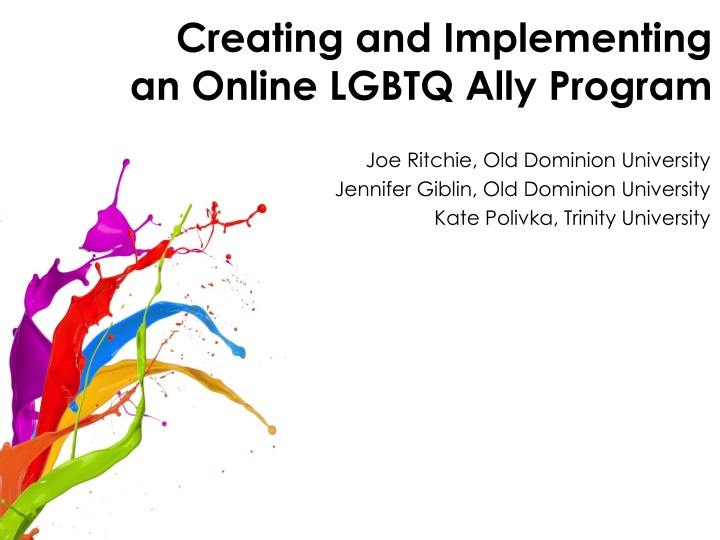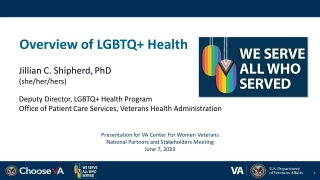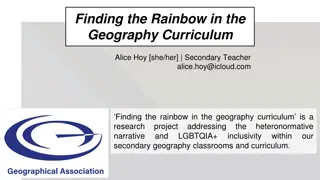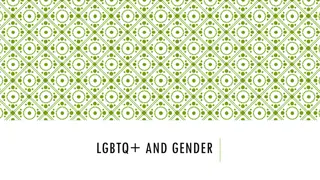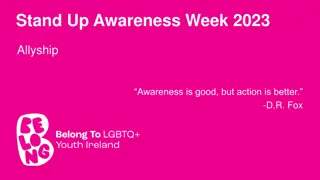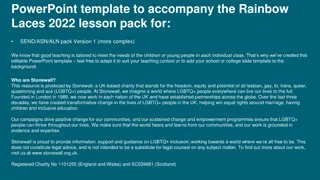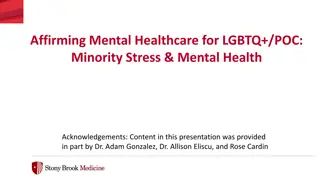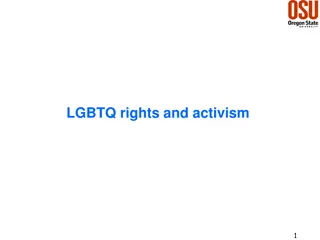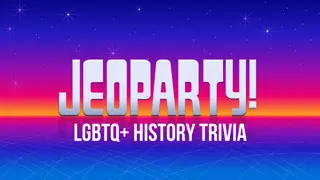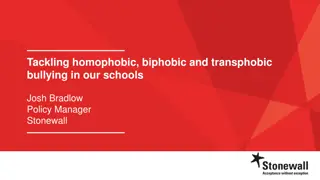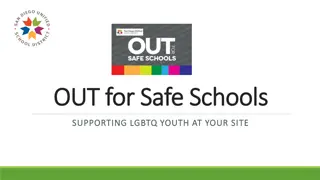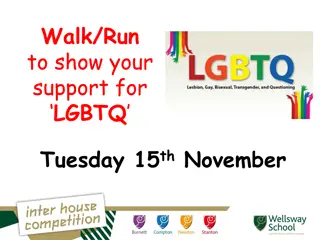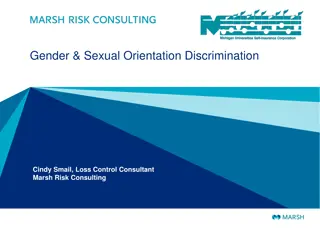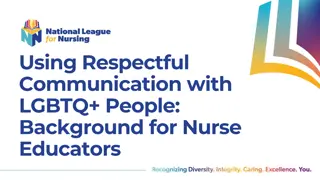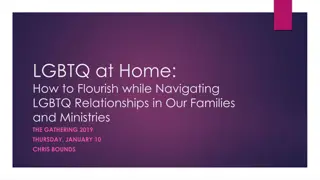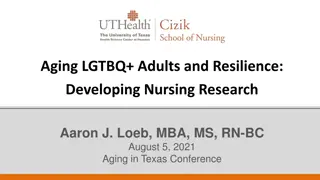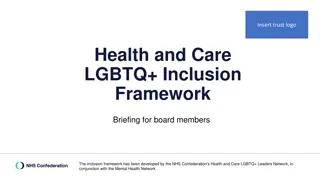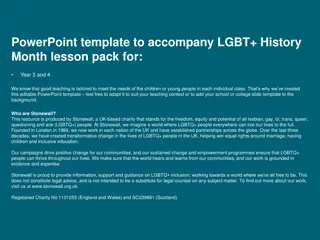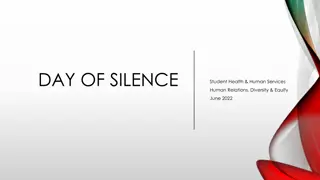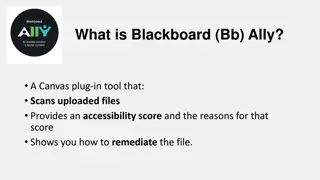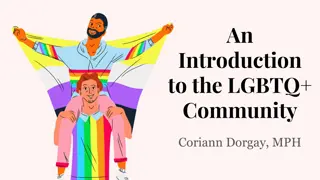Implementing Effective Online LGBTQ Ally Training Program
Creating and implementing an online LGBTQ ally program involves developing training modules, addressing terminology, discussing gender identity, and examining LGBTQ civil rights. The program aims to reduce homophobia and create a safe and accepting community for LGBTQ individuals and allies.
Download Presentation

Please find below an Image/Link to download the presentation.
The content on the website is provided AS IS for your information and personal use only. It may not be sold, licensed, or shared on other websites without obtaining consent from the author.If you encounter any issues during the download, it is possible that the publisher has removed the file from their server.
You are allowed to download the files provided on this website for personal or commercial use, subject to the condition that they are used lawfully. All files are the property of their respective owners.
The content on the website is provided AS IS for your information and personal use only. It may not be sold, licensed, or shared on other websites without obtaining consent from the author.
E N D
Presentation Transcript
Creating and Implementing an Online LGBTQ Ally Program Joe Ritchie, Old Dominion University Jennifer Giblin, Old Dominion University Kate Polivka, Trinity University
Presentation Outline Introduction Setting the Stage Hitting a Wall Development Pilot Version Lessons Learned Question & Answer
Presenters Joe Ritchie Jennifer Giblin Kate Polivka
Safe Space at ODU Housed in Student Affairs Committee of faculty/staff volunteers No dedicated personnel No physical space Limited budget
Committee Mission strives to reduce homophobia, transphobia and heterosexism.... We are dedicated to a vision of a community that is open, safe, and accepting to all lesbian, gay, bisexual, transgender and queer or questioning people and allies. We help cultivate this climate through awareness, education, and advocacy.
Committee Activities Training Advocacy Programs
Ally Training 2008 - Current training developed Consultant and peer review 6-hour, in-seat training Faculty, staff, and graduate assistants Distinguished from UG training by length and depth Train the trainer
Training Components Need for Safe Spaces Terminology Sexuality and Gender Identity Developmental Models Transgender Transitioning Process History of LGBTQ Civil Rights Student Panel Case Studies Resources
Changing Demands Number of Training Sessions Types of Training Options Depth of Material
Community Need Limited LGBTQ Resources Out Awareness of Our Resources Community Members
Requests for Flexibility Live In-Seat, 1 Day In-Seat, 2 - Days Broadcast, Distance Learning
Rationale for Online Version Push by Accrediting Body Distance Learning Sites Accommodate Inflexible Schedules Limited Number of Facilitators
Refining the Materials Selection of topics and activities Development of a script Division into modules Creation of slides, graphics
Translating Activities to Online Format Terminology Quiz Climate Assessment Checklist Heterosexual Privilege Checklist Coming Out Stars Coming Out Stories of Students Reflection Questions & Responses
Narrating the Modules Center for Learning and Teaching Utilization of University software Audio Articulate Blackboard Identification of narrators
Piloting the Online Training Pilot program Selection of participants Attrition of pilot testers Feedback interview Revisions https://www.blackboard.odu.edu
Assessments on Each Module Q1. What is your overall impression? Q2. The objectives were clear. Q3. The activities were aligned with content and resources. Q4. The resources were helpful for understanding content and completing assignments.
Assessments on Each Module Q5. What worked best? Q6. What worked least? Q7. Other comments and suggestions. Q8. Additional topics suggested (last module only).
Setbacks Experienced Inter-office collaboration Staffing changes Timeline from initiation to launch
Implications for Future Use Changes to certain modules Promote to University at large Offer internally only Useful for staff with limited time or odd hours (i.e. police) Student version
Contacts Joe Ritchie - jlritchi@odu.edu Jennifer Giblin - jgiblin@odu.edu Kate Polivka - kpolivka@trinity.edu
